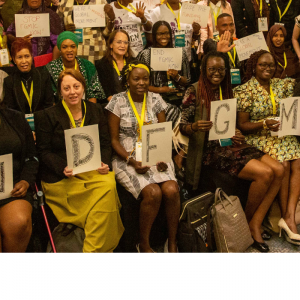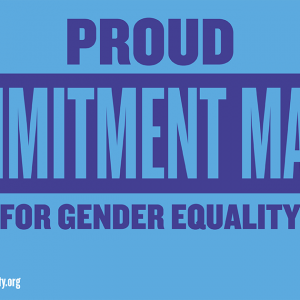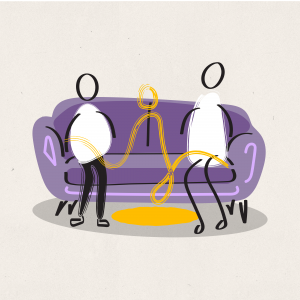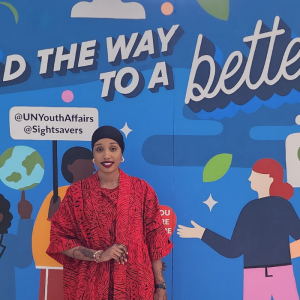The theme of International Women’s Day this year celebrates the tremendous efforts by women and girls in shaping a more equal future and leading recovery from the COVID-19 pandemic. It is also a day when global attention centres on the progress needed to achieve gender equality.
The Generation Equality Action Coalitions have released a draft set of actions they view as critical to creating gender-equal societies as the world rebuilds post COVID-19. Full blueprints detailing the draft agendas of each action coalition will be announced during the Generation Equality Forum in Mexico City later this month and commitments toward the action coalitions will be showcased by heads of state, civil society leaders, youth-led organisations, international organisations and the private sector in Paris in June 2021.
While these blueprints are still in the early stages of development, we urge the Action Coalitions on Gender-based Violence (GBV) and Sexual and Reproductive Health Rights (SRHR) to include commitments that clearly designate ending female genital cutting (FGC) as their main target.
FGC is a form of gender-based violence and a violation of the sexual and reproductive health rights (SRHR) of women and girls. It is a profound human rights violation that can have lifelong physical and psychological effects on those who have experienced it. When a girl is cut, the likelihood of her leaving school earlier increases, and this in turn can lead to lower earnings and less control over life-choices including whether and when to marry or to use family planning.
We know that discriminatory gender stereotypes and norms that define the limits of a girl’s aspirations and sexuality are a precursor to FGC, and are also reinforced by it. All the SDGs depend on the achievement of gender equality and we cannot achieve gender equality if we fail to end FGC.
We believe that achieving gender equality and investing in community activists is paramount to sustainably ending FGC. Our community led model supports participants to become active agents of change. When people are empowered and given resources to solve their own issues and challenges they can strive for further gender equality in all aspects of community life and decision making. We call on the Generation Equality Action Coalitions to ensure the meaningful inclusion of grassroots activists in the next stage of the development of their blueprints for supporting an end to FGC.”
Alice Crookenden, S.A.F.E. Programme Director
S.A.F.E is a Kenya-based NGO and Orchid Project partner. It operates a community led and designed intervention dedicated to ending FGC
Around the world, 200 million women and girls are affected by the practice. The impact that COVID-19 has had on efforts to end FGC means that an additional two million cases will also need to be averted if we are to meet the SDGs by 2030.
As we firmly enter the Decade of Action for achieving the 2030 Agenda, the Generation Equality Action Coalitions will play a key role in accelerating progress towards achieving Sustainable Development Goal (SDG) 5.3.2.
We need to continually champion for the rights of women and girls by opening up avenues and opportunities towards ensuring equality in decision making, resource allocation and leadership opportunities. Joint efforts by actors across sectors and governments also mean that news ways of working are adopted and those will prompt gains towards seeing women and girls are spaces of influence that will advocate for their rights and opportunities free from all forms violence including FGM/C of girls and other harmful cultural practices.”
Naitore Gituma Kariuki
Programmes Manager- COVAWThe Coalition on Violence Against Women (COVAW) is a national non-profit women’s rights organisation in Kenya committed to advancing women’s rights and work towards achieving a society free from all forms of Violence against Women and Girls
The actions released by the coalitions today are ambitious and transformational. What comes next will be crucial in galvanising efforts and zeroing attention on the commitments needed to achieve gender equality. It is therefore of utmost importance that leaders of the Action Coalitions on GBV and SRHR include actionable and measurable commitments towards ending FGC in the next stage.






